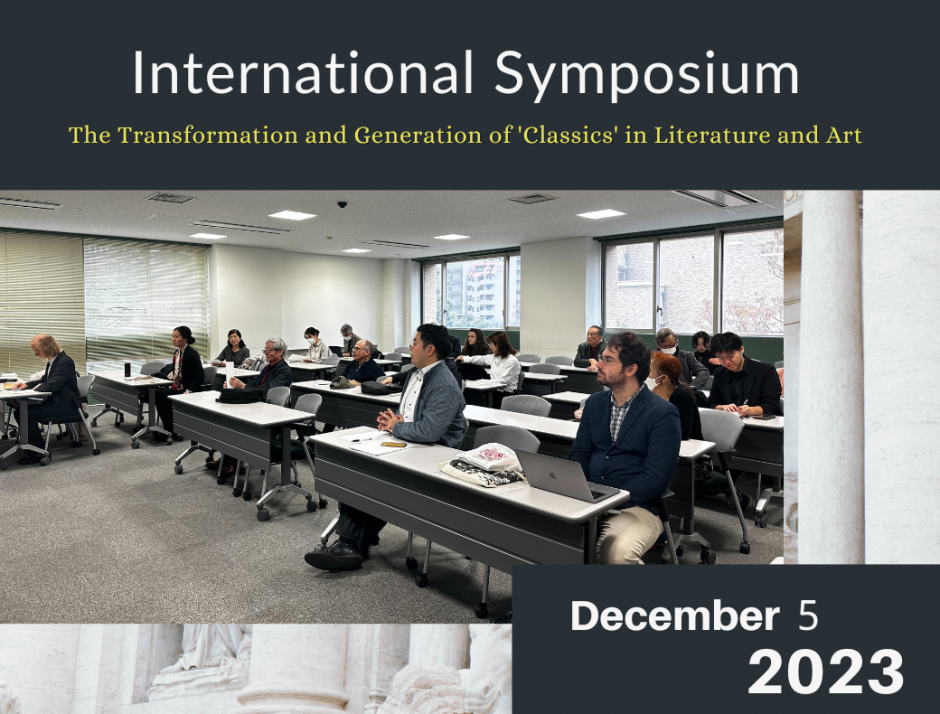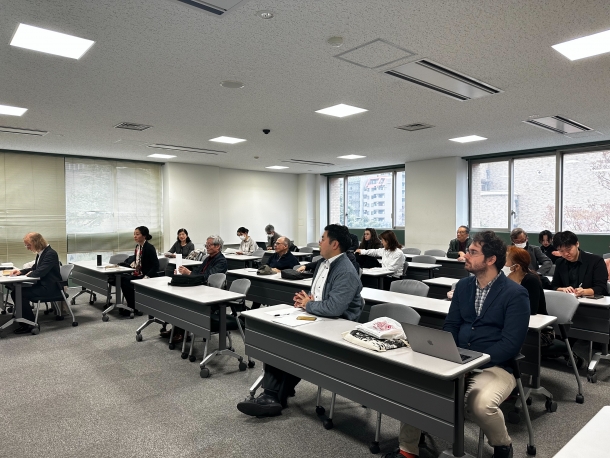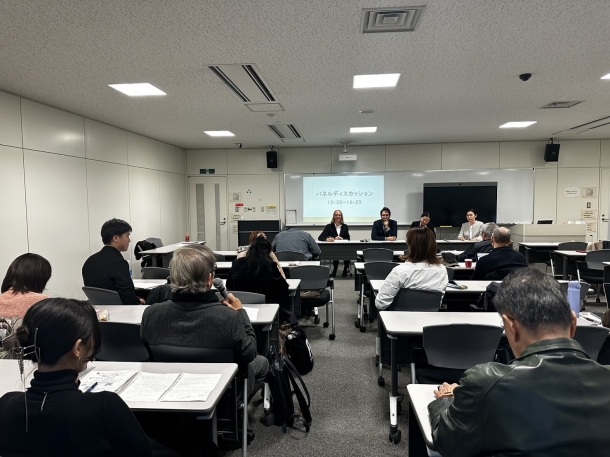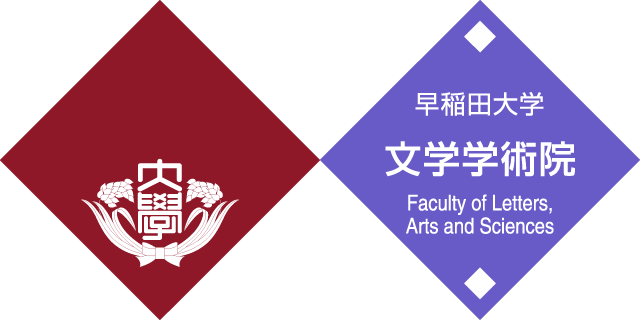- News
- Event Report: “The Transformation and Generation of ‘Classics’ in Literature and Art”
Event Report: “The Transformation and Generation of ‘Classics’ in Literature and Art”

- Posted
- Fri, 22 Dec 2023
The symposium, “The Transformation and Generation of ‘Classics’ in Literature and Art,” provided an opportunity to discuss the nature of classics and their inheritance from the perspectives of literature and art. Two lectures proposed the idea that texts, poems, and art work based on classics can be viewed not merely as reproductions or reconstructions, but as the creation of something new. The speakers were Edoardo Gerlini, a researcher at the Ca’ Foscari University of Venice specializing in classical and comparative Japanese literature and a visiting researcher at the Ryusaku Tsunoda Center of Japanese Culture, and Natsuko Kuwabara, a lecturer at the Waseda Institute for Advanced Study specializing in Western art history. Their discussion was the highlight of the symposium.

The symposium started at 14:00 on Tuesday, December 5, with an opening address by Professor Kimiko Kono, Waseda University Faculty of Letters, Arts and Sciences, followed by a lecture by Edoardo Gerlini on the theme of “Waka as Reproduced Heritage”. Gerlini focused on the waka technique of honkadori, analyzing the process of creating new waka poems based on the incorporation of famous ancient poems by the poets of the Shinkokinshu, and discussed the issue of originality and copying in the Japanese medieval period. The second lecture was given by Natsuko Kuwabara on “Medieval Christian Art and Classics”. After defining the significance of classics in Western art, Kuwabara analyzed the meaning of “classical” in medieval Italian art.
After the two lectures, an hour-long panel discussion followed. The discussion began with comments by discussant Fittler Aron, and was followed by questions and comments from the speakers to each other, and then many questions and comments from the floor.
The key issues were the fluidity of the classical object in the Middle Ages, the absence of a modern concept of author, and the problem of reuse of the classics and antiquity, as well as the way originals and copies were perceived in the pre-modern period. It became clear that in the Middle Ages, in both Japan and Italy, products considered copies, or secondary in the sense of modern values, had the same value as the originals. This was followed by a discussion of the connection between the classical-oriented movements in Japan and the West and national identity and nationalism as issues of the modern and contemporary era.
After the symposium, the participants commented that the symposium was very stimulating and meaningful in providing a forum for interdisciplinary and international discussions among researchers from different fields. Many visitors specializing in literature commented that it was very useful for them to have such an opportunity to hear about Western art, which they usually do not have the chance to do. At first glance, there seemed to be no connection between Italian art and Japanese classical literature, but the questions and comments from the floor provided a context for the content of both lectures. What seemed to be issues specific to Japanese classical literature were connected to awareness of issues in Italian art, while issues discussed in Italian art could also be shared by Japanese classical literature.
Through discussions between the speakers and the floor, it was concluded that more lively and multifaceted questions related to the classics are raised if we consider not only literature and texts, but also art, performance, and music. Thus, the symposium provided positive prospects for the continuation of research and future studies.
The event began at 14:00 with the interesting presentations and comments lasting until 16:30. There were 26 participants, including the speakers, who were experts in literature and art. The event was a great success and contributed to the development of international and interdisciplinary research on classics.
Event details
Date and Time: 14:00-16:30, December 5, 2023
Venue: Rm. 302, Bldg. 26, Waseda University
Language: Japanese
Lecturer: Edoardo Gerlini (Researcher, Ca’ Foscari University), Natsuko Kuwabara (Lecturer, The Waseda Institute for Adva, nced Study)
Discussant: Fittler Aron (Assistant Professor, The Waseda Institute for Advanced Study)
Opening remarks: Kono Kimiko (Professor, Faculty of Letters, Arts and Sciences, School of Culture, Media and Society, Waseda University)
Moderator: Maral Andassova (Lecturer, The Waseda Institute for Advanced Study)
- Tags
- Event Reports
